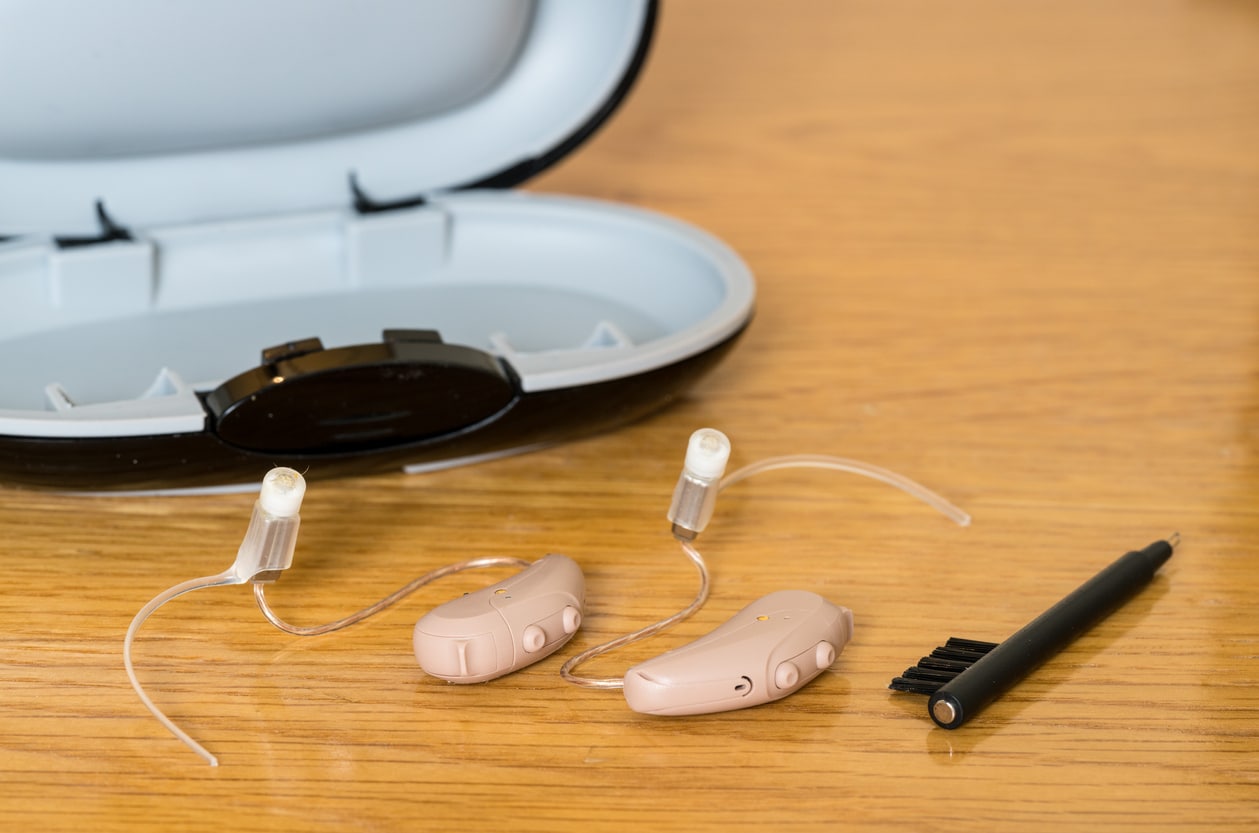Moisture can cause serious damage to your hearing aids, but if you get your hearing aids wet, don’t panic! There are methods to dry them thoroughly that can prevent moisture damage.

How Does Moisture Damage Hearing Aids?
Like any electronic device, hearing aids are vulnerable to water. Water exposure can damage circuitry, corrode the battery and harm the microphone. Hearing aids are especially susceptible to water damage because many of their electrical components are exposed, unlike laptops and smartphones, which have their electrical components tucked safely inside the shell.
What Is a Hearing Aid Dehumidifier?
A hearing aid dehumidifier looks like a small box or jar and utilizes a moisture-absorbing agent, such as silica gel beads or small crystals, to absorb moisture from the air inside the box or jar. Essentially, this agent acts like a sponge for the air. When you put your hearing aids in this jar, the moisture-absorbing agent will get to work. They will, however, take a few hours to complete absorption.
You can even make a DIY (do-it-yourself) dehumidifier by using a pack or two of silica beads (they usually come packaged with products like new electronics or shoes) and a small, airtight container, such as a pillbox. If you don’t have silica beads on hand, you can also use dry white rice.
What Is a Hearing Aid Dryer?
Hearing aid dryers are typically more advanced and electric. You place your hearing aids inside and turn the contraption on to begin drying. Some dryers use a gentle heater to evaporate moisture, while others use UV light to warm the air and also kill bacteria.
Which One Should I Use?
Both dehumidifiers and dryers have their pros and cons, but generally, they both work well in most scenarios.
A dehumidifier may be a better choice if you’re drying out from everyday exposure to moisture (sweat, humidity, light rain). We recommend putting your hearing aids in a dehumidifier every night when you take them out to sleep to counteract the day’s slight exposure to moisture, especially if you live in a humid climate. A dehumidifier may also be a better choice if your hearing aids are rechargeable, as electric dryers can damage the battery with the heat.
On the other hand, a dryer might be a better choice if your hearing aids have been drenched or submerged in water (if, for example, you forgot to take them out before showering or getting in the pool), since they work faster than dehumidifiers.
What Are Signs of Moisture Damage?
If your hearing aids start malfunctioning or sound quality changes after exposure to moisture, you may have moisture damage. Contact Beneficial Hearing Aid Center for a service and repair appointment if you notice any of the following signs or have any other concerns:
- Decreased sound quality
- Muffled or distorted sound
- Feedback or whistling
- Malfunctioning
- Shortened battery life
- Battery corrosion and leakage
- Hearing aids dying suddenly
- Rust
You can also call us if you want more information on dryers and dehumidifiers for hearing aids. We’re happy to answer your questions.
